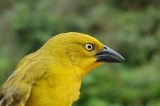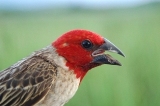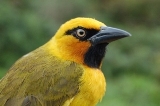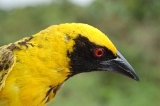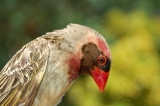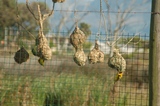PHOWN summaries and recordsVirtual Museum View records in Virtual Museum formatCoverage map for all species Species totals, Nest stats per species and Observer totals Species summary , or General query Observer records, or View VM record Photo of the week, or PHOWN repeats, or PHOWN priorities |
PHOWN record summary
|
Enter new vm record to see a different record and hit 'Go'.
|
Species allocated by Coordinator: Record details entered by participant: (see all records here for this participant) Google map for this record (zoom in and switch to satellite view)
Best: Little Weaver - first record from Niger
Photos uploaded by observer

Large photos
3918, Little Weaver Ploceus luteolus (see species summary here)Record status ACCEPTED Vm 18515 [on-line data upload (2015-12-17): 182012] Species Little Weaver Observer(s) Robert Schoenbrodt Country, town, locus Niger, , Timia ,
NE_018008BBLocality Timia Latitude, longitude 18.1143, 8.7788 [0 m accuracy] Date 2007/1/9 Notes Comments by Joost Brouwer: The male looks to be moulting to first breeding plumage, with its crown still streaked and its iris still dark (hazel in breeding as well as non-breeding males, dark in juvenile and females). Nest materials used: mostly grasses. Robert saw 8 nests together. Perhaps most of the nests were old, but it is perhaps also possible that this oasis in the otherwise very dry Aïr 'invites' colonial nesting by this species.
Picture taken in the middle of the dry season while they are rainy season nesters, till October in Niger. On the other hand, breeding season at an oasis in a very dry area (<150 mm/yr) is perhaps also not tied to the wet season. Nest count 8 Nest site tree
To see this map with all other PHOWN records, click here. Note that the map on this page will load very slowly and probably will only work if you use Chrome as a browser.
History of repeat colony counts
Note: repeats from the same day are not shown.vm Species code Date Nests Notes 18515 3918 9/1/2007 8 Comments by Joost Brouwer: The male looks to be moulting to first breeding plumage, with its crown still streaked and its iris still dark (hazel in breeding as well as non-breeding males, dark in juvenile and females). Nest materials used: mostly grasses. Robert saw 8 nests together. Perhaps most of the nests were old, but it is perhaps also possible that this oasis in the otherwise very dry Aïr 'invites' colonial nesting by this species.
Picture taken in the middle of the dry season while they are rainy season nesters, till October in Niger. On the other hand, breeding season at an oasis in a very dry area (<150 mm/yr) is perhaps also not tied to the wet season. 
Vm 18515
